Anthony Hill’s Newsletter
Winter 2023
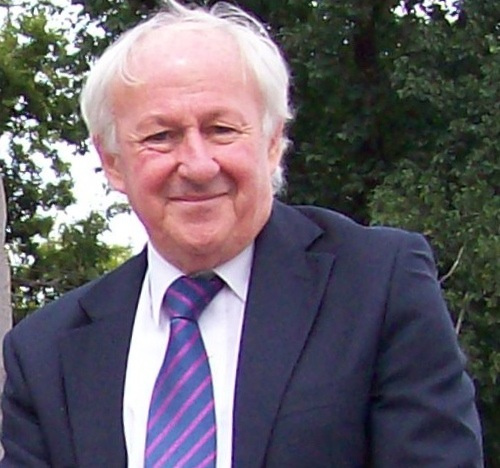
Dear friends
Welcome to my Winter 2023 Newsletter. In this edition:
• The Investigators published successfully
• New work: Bonny; Soldier Boy play
• Milestones: Soldier Boy updated; For Love of Country out of print
• Trove rescued; Digital Lending Rights
• Vale Edith Lock; David and Lyn Daws
• Literary Awards
The Investigators published
It was a great relief as well as pleasure to see the first copies of The Investigators roll off the presses and finally go onto the market in March. It brought to an end a project that began nearly four years earlier, shortly after completing The Last Convict – and indeed marked my literary “coming of age.”
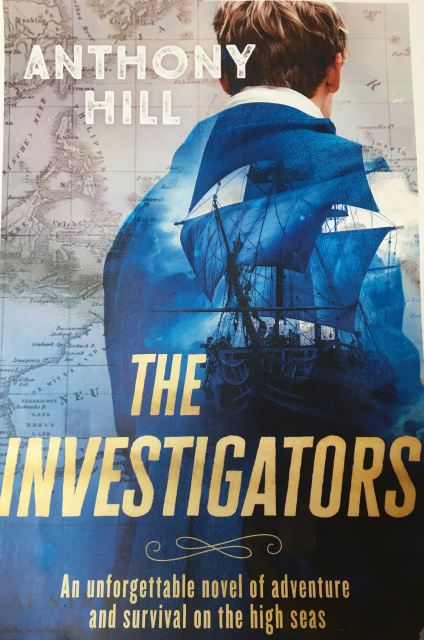 The Investigators is the twenty-first book I’ve had published since The Bunburysists so long ago in 1985. And having now reached 81 myself, I have decided it will be the last historical novel I intend to write. (One never quite says never.)
The Investigators is the twenty-first book I’ve had published since The Bunburysists so long ago in 1985. And having now reached 81 myself, I have decided it will be the last historical novel I intend to write. (One never quite says never.)
It’s partly a matter of age: I don’t know how many more lots of four years I have left. And it’s partly an artistic concern: they were beginning to feel rather formulaic. High time to attempt something different – of which see below in New Work.
Meantime, The Investigators has begun well. More than three-quarters of the initial print run is out in the shops and institutions, and the response has generally been favourable. I did a number of very positive radio interviews, some of which I’ve put up on my website, and there’s an excellent audio book reading by Jerome Pride.
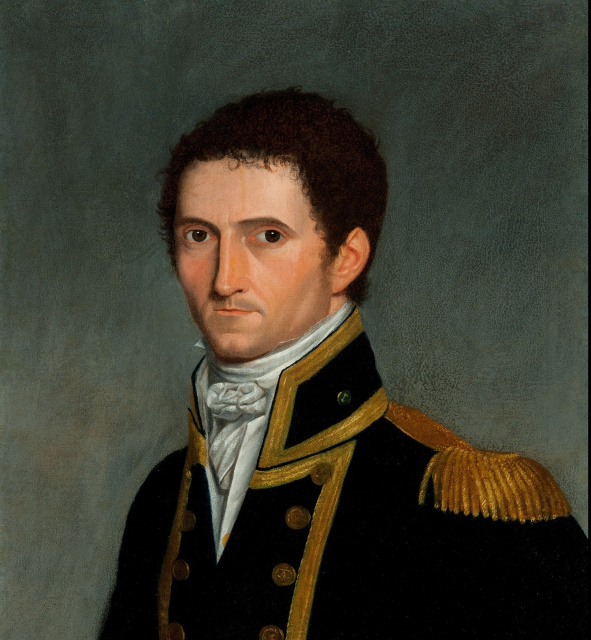 Flinders today:Among the correspondence I received a fine message from Mark Verrills, a mariner who presently works as a master on the tugs in Port Jackson and Port Botany, but has also worked as master delivering tows around the country, including Spencer Gulf and Thistle Island.
Flinders today:Among the correspondence I received a fine message from Mark Verrills, a mariner who presently works as a master on the tugs in Port Jackson and Port Botany, but has also worked as master delivering tows around the country, including Spencer Gulf and Thistle Island.
Matthew Flinders
Having read the book, Mark said, “I feel compelled to write to you to express the joy I had reading The Investigators. I struggled to put it down and accomplish any work. I actually feel I was on the voyage with Flinders and Franklin, and your description of our coastline and our First Nations people was first class.”
Mark went on to say he’d been talking about the book to a retired Harbour Pilot who began his career with BHP in the early 60s, and said that some of the Spencer Gulf charts he used then still made reference to the Flinders survey.
I’ve thanked Mark for his message, and he gave me permission to quote from it here. Authors receive many letters from readers, kind and sometimes critical. But as a landlubber, rarely have I received such a letter from a mariner and master who knows whereof he speaks. I took it as a very high compliment. His response was everything I’d hoped for the book.
John Franklin. I also received a very generous letter from Max Gibson of Spilsby, Lincolnshire – the town where Sir John Franklin was born in 1786 and grew up in his father’s shop, which still stands. Franklin was Matthew Flinders’ cousin by marriage, sailed with him, and The Investigators is largely told through his eyes.
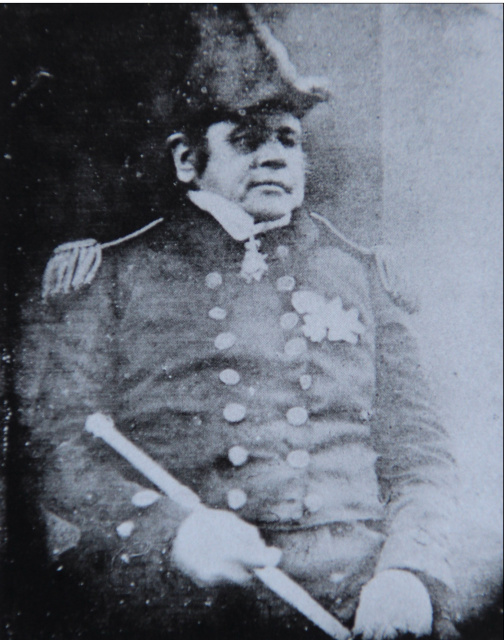 Max is a town councillor and was enormously helpful during the writing of Franklin’s boyhood years. Due to Covid, I was unable to visit England myself. His assistance with the local topography and descriptions was crucial to making the work as accurate as I could.
Max is a town councillor and was enormously helpful during the writing of Franklin’s boyhood years. Due to Covid, I was unable to visit England myself. His assistance with the local topography and descriptions was crucial to making the work as accurate as I could.
Sir John Franklin c.1845
Max’s letter also gave many fascinating details of Franklin Week, held at Spilsby in April, Franklin Hall (as the Town Hall has been renamed) and other local commemorations to Franklin, Matthew and Ann Flinders. As Flinders is to be reinterred next year at Donington, his Lincolnshire birthplace, I’ll include a further account and photos in the Summer News.
New Work
As mentioned above, I’ve now turned my attention to some new, and rather less onerous, literary ventures – short stories and adaptations of two of my books for the stage. In the year since finishing writing The Investigators, I’ve made a fair start in directions that provide the artistic challenges I was looking for.
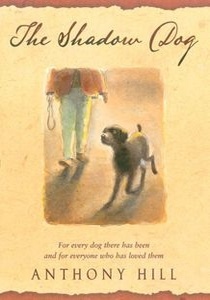 Bonny.For a long time I’ve wanted to write the sequel to The Shadow Dog, the sad tale of a dog we once had called Sebastian. Unfortunately, most people don’t like sad animal stories (although they don’t mind if the people die, think Paul Gallico’s The Snow Goose,) and the book didn’t do commercially all that we’d hoped.
Bonny.For a long time I’ve wanted to write the sequel to The Shadow Dog, the sad tale of a dog we once had called Sebastian. Unfortunately, most people don’t like sad animal stories (although they don’t mind if the people die, think Paul Gallico’s The Snow Goose,) and the book didn’t do commercially all that we’d hoped.
I always thought I should have included as an epilogue the story of our next dog, Bonny, the ending of which was as joyous and life-affirming as Sebastian’s was not. I made several attempts to write it as fiction, but none of them really worked and I left them in the drawer.
Well, Ali Watts my publisher at Penguin Random House had a rather significant birthday, and I wrote out Bonny’s story for her as a thank you for all the help she has given me – and her dear mother Julie before that. It was done as a simple narrative of what happened, just like The Shadow Dog, and I think it succeeded as a companion tale.
What will happen to it now, I don’t know. Perhaps part of an anthology, or an eBook possibly. Unlikely as a stand-alone volume in these hard publishing times. But at least it’s done, and there’s an idea for a set of short stories percolating in my head.
Soldier Boy, the play. Soon after finishing Bonny, I was helping our local theatre company get ready for a show when, looking out from the stage, I suddenly saw how I could do a version of Soldier Boy as a play. The book is still widely studied in schools, and such a play could well find a ready audience.
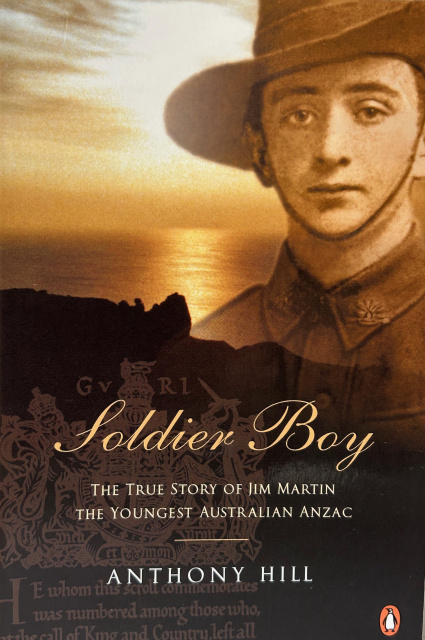 As one who was stage struck at the age of three – still is – and who has told the story countless times over the past 22 years – the first draft came fairly quickly. And I no sooner finished it than I began to dramatise the companion book Young Digger, which again was completed in draft form within three months.
As one who was stage struck at the age of three – still is – and who has told the story countless times over the past 22 years – the first draft came fairly quickly. And I no sooner finished it than I began to dramatise the companion book Young Digger, which again was completed in draft form within three months.
Writing for the stage (or film) is certainly less time-consuming than long historical novels, but is very different and in many ways far more difficult. What reads well on the page doesn’t necessarily transfer to a plausible performance (or vice versa), and unlike the solitary occupation of the novelist is much more of a collective enterprise to fully realise.
With the generous help of a cousin Laura Iris Hill, an actor who’s just returned home after a decade in New York, I’ve done two more drafts of Soldier Boy, and we’ve been in preliminary discussions with several directors/producers about a possible production.
Whether anything comes of it I can’t say. It’s a risky business. But I do hope to make copies of both the Soldier Boy and Young Digger plays available to schools. When studying a novel, it’s great for students to be able to act out some of the key scenes to help their understanding of the story and the dilemmas faced by the characters.
Besides, I’ve long thought both stories would make good films or television series, and the dramatisations might provide a professional screenwriter with at least the basis for a treatment.
Milestones
Soldier Boy updated. One offshoot of the Soldier Boy dramatisation has been a new, updated edition of the book which was first published in 2001. It was long thought Jim Martin was the youngest of the Anzacs, but during the research for the play I found it has since been discovered that a New Zealand boy Leslie Shaw, born two weeks after Jim, served at the Gallipoli landings and in France. He was only 13 when he enlisted in the UK.
We used the opportunity to amend the subtitle of Soldier Boy naming Jim Martin as “the youngest Australian Anzac,” and to put a short paragraph about Leslie in the Author’s Notes at the beginning. See the cover above. Shaw survived the war, and Jim Martin remains almost certainly the youngest Australian soldier to die in war.
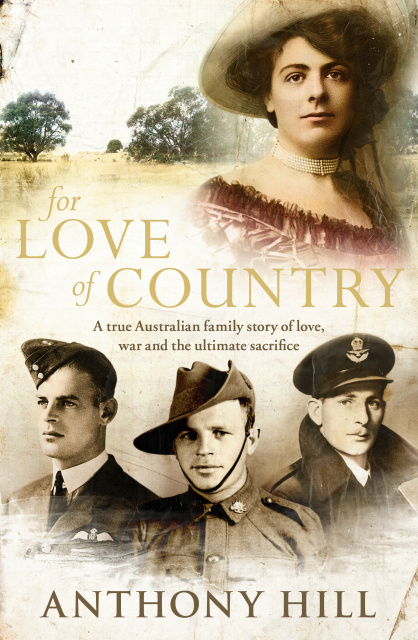 For Love of Country. It’s with regret that I have to advise that my book For Love of Country has now gone out of print. The historical novel tells the saga of the Eddison soldier-settler family across three generations: their experience in the First and Second Wars and the Great Depression of the 1930s.
For Love of Country. It’s with regret that I have to advise that my book For Love of Country has now gone out of print. The historical novel tells the saga of the Eddison soldier-settler family across three generations: their experience in the First and Second Wars and the Great Depression of the 1930s.
Settling in the Canberra district, the novel tells their story in parallel with the early growth of the national capital. I was given immense help during the research and writing by Pam Yonge, last of the Eddison sisters, and members of her family to whom I remain indebted.
The book sold just under 5000 copies since it appeared in 2016 – half-way to an Australian best-seller – but sales had slowed and it is now out of print. I have a very few copies still available if any of you are interested. I always thought the book would make an excellent television series. When I have nothing else to do I might try drafting a possible treatment myself.
Trove. Some of you may have caught the splendid news that Trove, the invaluable online newspaper, journal and archive research project of the National Library of Australia is to be funded by the Federal Government.
There was concern the resource might have to close because of cost pressures, but in April it was announced the Government would make available $33 million to maintain Trove over the next four years, with $9.2 million ongoing and indexed funding from 2027. I’ve acknowledged Trove in all my later books, and this is indeed a wonderful commitment to what the Director-General of the NLA, Dr Marie-Louise Ayres has called a “national treasure “and “world leader” in the field.
Digital Lending Rights. In another most welcome development for creators, the Government has announced that, from next year, electronic audio and e-books will be eligible for Digital Lending Rights. Authors and Illustrators already receive Public Lending Rights (annual payment for books in libraries), and Educational Lending Rights for works in schools and other educational institutions.
The extension of the scheme to include electronic publications will provide some further annual support for eligible creators. It is the fruit of a long campaign by the Australian Society of Authors, and was announced as part of the National Cultural Policy earlier this year.
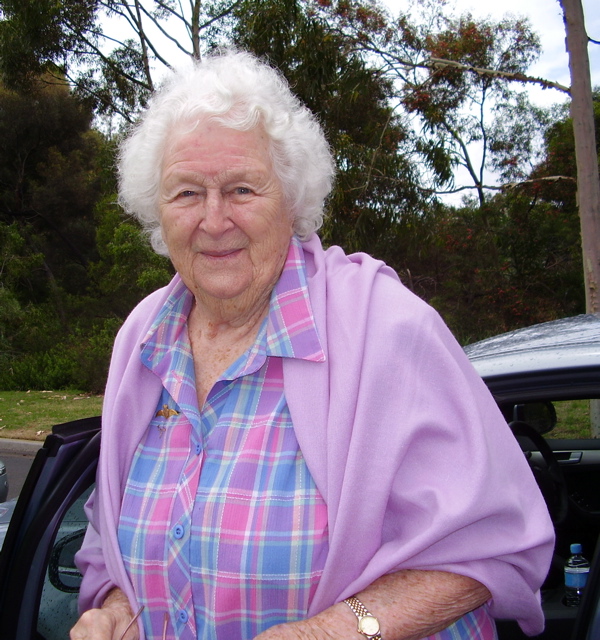 Vale Edith Lock. It was with much sadness that I learned of the death of Edith Lock, youngest daughter of Tim and Gertie Tovell. Readers will remember them as the foster parents and protectors of Young Digger, the French war orphan known as Henri Hemene Tovell whom Tim and his brother Ted smuggled back to Queensland in 1919.
Vale Edith Lock. It was with much sadness that I learned of the death of Edith Lock, youngest daughter of Tim and Gertie Tovell. Readers will remember them as the foster parents and protectors of Young Digger, the French war orphan known as Henri Hemene Tovell whom Tim and his brother Ted smuggled back to Queensland in 1919.
The late Edith Lock
Edie and her elder sister Nancy gave generous and unfailing support to me during the writing of Young Digger, and the family made available their wonderful archive of photographs, letters and memorabilia. Edie spoke most movingly of the boy she regarded as her brother when Digger’s new grave was unveiled at Fawkner Cemetery where the photo of her was taken. She was 102 when she died last year – a great age for a great lady.
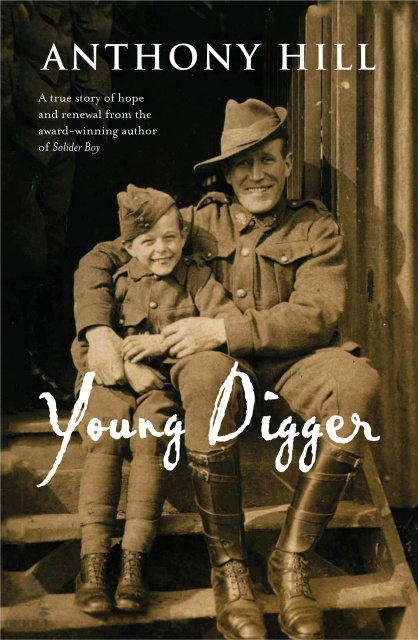 Vale David and Lyn Daws. I also have to record the sad news of the passing of David Daws and, within a few months, his late wife Lyn, at their home in Melbourne.
Vale David and Lyn Daws. I also have to record the sad news of the passing of David Daws and, within a few months, his late wife Lyn, at their home in Melbourne.
It was David who, after reading Young Digger and knowing that his father had served in 4th Squadron of the Australian Flying Corps, searched in the family albums and found several photos of Digger and the Tovells at Hurdcott camp, England, on the way home in 1919.
The photo of Digger with Ted Tovell was so good and hitherto unknown, that David generously gave us permission to use it on the cover of the new edition of Young Digger in 2016.
His generosity and kindness continued until his death; and shortly before she also died Lyn asked me to donate to the RAAF Association of Victoria a large, authorised reproduction of a painting from the photo by artist George Petrou. I hope it will hang in their rooms as a tribute not just to the war orphan and his family, but to two good people who helped ensure that Digger’s story continues to be told.
Literary Awards
Congratulations to the authors and illustrators of the books being considered for all the literary awards considered this year.
Booker Prize: Time Shelter by Georgi Gospodinov and Angela Rodel, about a clinic for the past, promising treatment for Alzheimer’s sufferers.
Stella Prize: The Jaguar, by Sarah Holland-Batt for a moving collection of poems exploring personal grief, love and mortality arising from her father’s diagnosis with Parkinson’s Disease.
As other major awards will be announced relatively soon, I will mention the winners in the Summer edition of the Newsletter. They include the Miles Franklin Award, Prime Minister’s Literary awards and the Children’s Book Council of Australia book of the year awards.
Books in print:
Personally-signed books still in print can be ordered through the website here.
• Animal Heroes ($33 plus $10.60 postage)
• The Burnt Stick ($17.00 plus $3.60 postage)
• Captain Cook’s Apprentice ($33 plus $10.6 postage)
• The Last Convict ($33 plus $14.50 postage)
• The Story of Billy Young ($23 plus $10.60 postage)
•Soldier Boy ($20 plus postage $3.60)
• Young Digger ($30 plus postage $10.60)
I will refund any excess postage if multiple books are purchased.
Books out of print:
I have a very few copies left of some of my older titles that are now out of print. They include Antique Furniture in Australia; For Love of Country; The Grandfather Clock; Growing Up & Other Stories; River Boy; and a couple of Harriet and Spindrift. If readers are interested in any of them, please contact me directly at anthony@anthonyhillbooks.comand I’ll let you know prices, postage and payment.
The next Newsletter will be the Summer 2024 edition.
With every good wish
Anthony
Photo credits:
Book covers courtesy of Penguin Random House; Edith Lock, Anthony Hill, portrait of Flinders painted on Mauritius by de Chazal and Franklin photograph Wikimedia Commons;
www.anthonyhillbooks.com